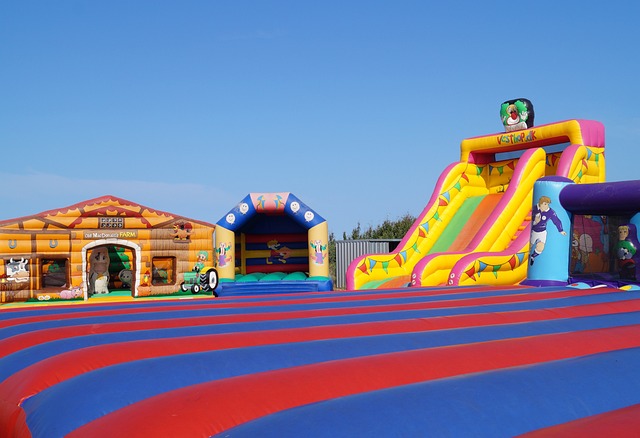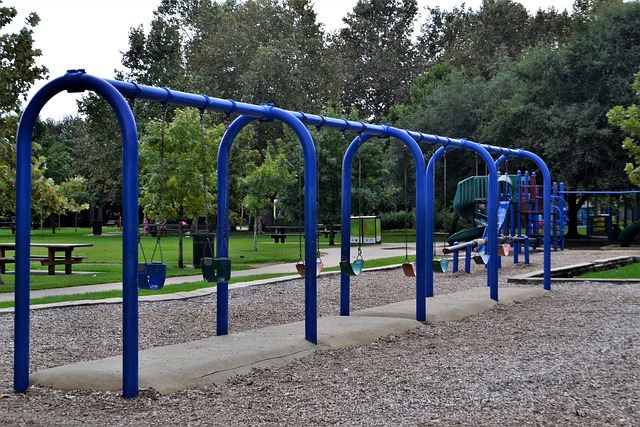Planning a family-friendly farm tour? Partnering with Children's museums is key for creating memorable, educational experiences. These farms offer interactive activities like feeding animals, planting seeds, and workshops, fostering curiosity about agriculture and nature. With tailored activities for all ages, farm tours combine entertainment and instruction, leaving kids with lasting memories and appreciation for agricultural practices. By incorporating elements from Children's museums, farms can create engaging, welcoming environments that attract families seeking outdoor education and bonding experiences.
Family-friendly farm tours offer an immersive, educational experience where children can connect with nature and learn about agriculture. This article explores strategies for creating engaging and interactive activities that cater to all ages, from exploring fields to milking cows. We’ll delve into choosing the right farm, designing welcoming spaces, incorporating educational elements, promoting family bonding, and effective marketing to attract families seeking unique experiences—a refreshing alternative to traditional children’s museums.
- Choosing the Right Farm for Interactive Learning Experiences
- Designing Engaging Activities for All Ages
- Creating a Welcoming Environment for Children
- Incorporating Educational Elements into the Tour
- Promoting Family Bonding Through Agricultural Adventures
- Marketing Strategies to Attract Families to Farm Tours
Choosing the Right Farm for Interactive Learning Experiences

When planning a family-friendly farm tour, selecting the right farm is key to creating memorable and educational experiences for children. Look for farms that offer interactive activities tailored for young visitors, such as feeding animals, planting seeds, or participating in hands-on workshops. These engaging pursuits not only spark curiosity but also foster an early connection to agriculture and nature.
Children’s museums are a great resource for finding farms that prioritize interactive learning. These institutions often curate partnerships with local farms to offer day trips or summer camps, combining the educational benefits of a museum with the immersive experiences of a farm setting. By choosing a farm that aligns with these criteria, families can ensure their visit is both entertaining and instructive, creating lasting memories while also instilling an appreciation for agricultural practices.
Designing Engaging Activities for All Ages

When crafting farm tour experiences, engaging all ages is key to creating a memorable and enjoyable event for the whole family. While adults may appreciate learning about agricultural practices or historic farming techniques, children will thrive on hands-on activities that spark their curiosity and imagination. Incorporating elements from children’s museums can offer interactive exhibits and play-based learning opportunities tailored for younger visitors. Think petting zoos, where kids can interact with farm animals, or sensory gardens that encourage exploration through touch and smell.
Activities should be designed to cater to different developmental stages. Simple tasks like feeding livestock or identifying plants can engage preschoolers, while older children might enjoy more complex challenges such as designing their own small-scale farming layouts or participating in scavenger hunts around the farm. The goal is to create a diverse range of experiences that keep every family member entertained and educated throughout the tour.
Creating a Welcoming Environment for Children

Creating a welcoming environment for children on farm tours is essential to making sure they have an enjoyable and educational experience. Many farms cater specifically to families, offering interactive activities designed to engage young minds. These can range from feeding animals to teaching them about agriculture and nature through hands-on experiences. Such immersive learning opportunities not only foster curiosity but also create lasting memories for children.
To make these tours even more appealing, consider incorporating elements that mimic Children’s museums. Interactive exhibits, educational games, and storytelling sessions can add a layer of fun and learning. This approach ensures that children are actively participating and exploring, while parents appreciate the balance between entertainment and education. A well-designed farm tour can thus be a delightful adventure for both kids and adults.
Incorporating Educational Elements into the Tour

Farm tours offer a unique opportunity to blend education and entertainment, creating an engaging experience for the whole family. Incorporating educational elements can transform a simple tour into a memorable learning adventure. For instance, guide farm tours can include interactive demonstrations that teach children about animal care, farming techniques, and the importance of sustainability. These hands-on activities can be tailored to different age groups, making them suitable for both younger kids and teenagers.
Children’s museums are a great resource in this context, providing innovative exhibits and programs designed to spark curiosity and educate through play. By partnering with local children’s museums or creating themed exhibits on the farm, tour operators can offer an immersive experience that combines traditional farming practices with modern educational methods. Such approaches not only make the tour more enjoyable but also contribute to a deeper understanding of agriculture and its role in our daily lives.
Promoting Family Bonding Through Agricultural Adventures

Family farm tours offer a unique opportunity for bonding and creating lasting memories. These agricultural adventures provide an escape from the hustle and bustle of everyday life, allowing families to reconnect with nature and each other. Unlike children’s museums, which often focus on indoor exhibits, farm visits encourage exploration outdoors, fostering a sense of wonder and curiosity in kids as they learn about where their food comes from. From feeding animals to helping with simple farming tasks, these activities engage all ages, creating a shared experience that strengthens family ties.
By immersing themselves in the rural setting, families can enjoy quality time together while also gaining valuable knowledge about sustainability and agricultural practices. Such experiences are especially beneficial for urban dwellers who may have limited exposure to nature, offering a chance to unplug from screens and reconnect with the land. So, whether it’s a weekend getaway or a school break activity, family-friendly farm tours promise not just entertainment but a meaningful bonding experience that will be talked about for years to come.
Marketing Strategies to Attract Families to Farm Tours

To attract families to farm tours, a strategic marketing approach is essential. Creating an engaging and inclusive environment that caters to both adults and children is key. One effective strategy is to position your farm tour as an educational experience that combines traditional farming with interactive activities. Highlight the opportunities for kids to learn about where their food comes from, engage in hands-on agricultural tasks, and explore nature up close. This blend of education and fun can be a powerful draw for families seeking unique and memorable outings.
Leveraging social media platforms and partnerships with local children’s museums is another potent marketing tool. Collaborating with these institutions to offer joint tickets or special events tailored for families can significantly broaden your audience reach. By integrating digital elements, such as virtual tours or augmented reality experiences, you can further enhance appeal to tech-savvy parents. Additionally, offering seasonal themes and activities, like pumpkin picking in fall or Easter egg hunts, provides consistent reasons for families to visit throughout the year.






